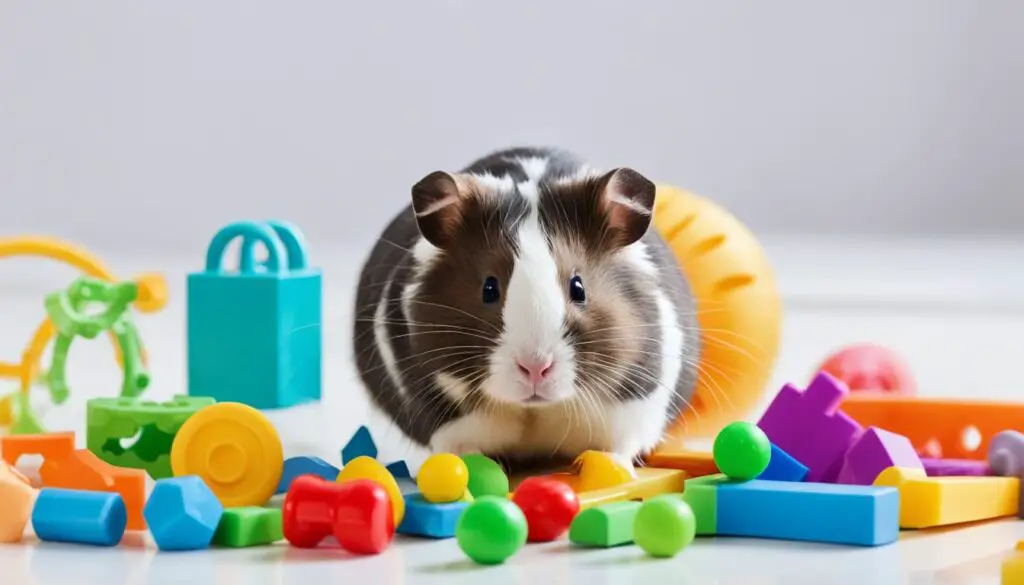As a pet owner, I understand the challenges that can arise when dealing with aggression in small pets. Whether you have a feisty Chihuahua or a territorial cat, it’s important to address and manage their aggressive behavior effectively. One of the key ways to do this is through behavioral training.
Behavioral training plays a crucial role in addressing aggression in small pets, especially dogs. Dogs, in particular, may display signs of aggression such as growling, lunging, barking, or nipping. It’s essential to identify these signs early on and seek professional help from a certified dog behavioral consultant. These experts have the knowledge and expertise to assess the underlying causes of aggression and design a customized training program to address it.
Aggression in small pets can be caused by various factors, including fear, poor socialization, territorial behavior, or even underlying medical conditions. It’s important to consult with a veterinarian to rule out any health issues that may be contributing to the aggression. Additionally, providing adequate exercise and mental stimulation is crucial in managing aggression and creating a harmonious home environment.
With the right training techniques and guidance from professionals, aggressive behavior in small pets can be effectively managed and reduced. In the following sections, we will explore the signs of aggression, the importance of veterinary evaluation, the role of certified behavioral consultants, and the significance of exercise and stimulation in managing aggression. By addressing these key aspects, you’ll be equipped with the knowledge and tools to help your small pet overcome aggression and lead a happy, balanced life.
Key Takeaways:
- Behavioral training is crucial in addressing aggression in small pets.
- Consult with a certified dog behavioral consultant for professional guidance.
- Aggression in small pets can stem from various factors, including fear and poor socialization.
- Seek a veterinary evaluation to rule out any underlying medical conditions contributing to aggression.
- Exercise and mental stimulation play a significant role in managing aggression and promoting a harmonious home environment.
Signs of Aggression in Small Pets: What to Look For
Small pets, including dogs, can exhibit various signs of aggression that pet parents should be aware of. These signs range from subtle behaviors like yawning and nose licking to more obvious warning signs like growling and snapping. It is crucial to recognize these signs early on to prevent further escalation of aggression.
One helpful resource for understanding the severity of different warning signs is the “canine ladder of aggression” provided by the Ontario SPCA and Humane Society. This ladder outlines the progression from mild warning signals to more intense displays of aggression, allowing pet parents to better understand the severity and urgency of the situation.
If you notice any signs of aggression in your small pet, it is essential to seek professional help from a certified dog behavioral consultant. These experts have the knowledge and experience to develop an effective action plan to address the aggression and implement appropriate training techniques.
By recognizing and addressing the signs of aggression early on, pet parents can take the necessary steps to ensure the well-being and safety of their small pets and prevent any harmful incidents from occurring.
Canine Ladder of Aggression
| Level | Behaviors |
|---|---|
| 1 | Yawning, lip licking, whale eye |
| 2 | Growling, showing teeth, snarling |
| 3 | Snapping, air snapping |
| 4 | Light biting, body blocking |
| 5 | Biting without puncture |
| 6 | Biting with puncture |
Veterinary Evaluation for Aggressive Small Pets
If a small pet displays signs of aggression, it is essential to schedule a veterinary evaluation. Aggression can be a result of underlying medical conditions or pain. A comprehensive veterinary exam can help identify any health issues that may be contributing to the aggression. Treating the underlying medical condition can often lead to a reduction or elimination of aggressive behaviors. It is important to communicate your concerns to the veterinarian and provide a detailed observation of the pet’s aggression to aid in diagnosis and treatment.
Understanding the Importance of Veterinary Evaluation
When it comes to addressing aggression in small pets, a veterinary evaluation is a critical step. Aggressive behavior can often be a sign of an underlying medical condition or pain that the pet is experiencing. By conducting a thorough examination, the veterinarian can identify any health issues that may be contributing to the aggression.
During the veterinary evaluation, the veterinarian will assess the pet’s overall health and look for any signs of physical discomfort or illness. They may also recommend additional tests or procedures, such as blood work or radiographs, to further investigate any potential underlying causes of the aggression.
Treating Underlying Medical Conditions
Once the veterinarian has identified any underlying medical conditions contributing to the aggression, they can develop a treatment plan. The specific treatment will depend on the nature of the medical condition, but it may involve medication, dietary changes, or other interventions.
By addressing the underlying medical condition, the veterinarian can often alleviate the pet’s discomfort and reduce or eliminate the aggressive behavior. It is important to follow the veterinarian’s treatment plan and schedule any necessary follow-up appointments to monitor the pet’s progress.
Effective Communication with the Veterinarian
When discussing your pet’s aggression with the veterinarian, it is crucial to provide a detailed observation of the behavior. Be prepared to share specific instances of aggression, including the triggers, frequency, and severity of the incidents. This information will help the veterinarian in their diagnosis and treatment plan.
Additionally, be sure to mention any changes in behavior or other symptoms that may be relevant to the aggression. This comprehensive communication will assist the veterinarian in understanding the full picture and providing the best possible care for your pet.
Working with a Certified Behavioral Consultant for Aggression
When dealing with aggression in small pets, it is essential to seek the assistance of a certified behavioral consultant. These professionals have the knowledge and expertise to help determine the underlying causes of aggression and design a customized behavior modification program. By working with a certified consultant, pet parents can gain valuable insights into their pet’s behavior and implement effective training techniques.
A certified behavioral consultant will start by conducting a thorough assessment of the pet’s aggression. This involves observing the pet’s behavior, identifying triggers, and evaluating the pet-parent relationship. Based on the assessment, the consultant will develop a training plan that is tailored to the specific needs of the pet and the family.
One of the key advantages of working with a certified consultant is their ability to ensure that the training methods used are not exacerbating the pet’s fear or anxiety. They will employ positive reinforcement techniques that focus on rewarding desired behaviors and gradually desensitizing the pet to triggers that elicit aggression.
By choosing a certified dog behavior consultant instead of a self-styled “trainer,” pet parents can have confidence in the consultant’s qualifications and expertise. Certified consultants have undergone rigorous training and have a deep understanding of animal behavior and psychology. They are equipped with the tools and techniques necessary to address the specific behavioral issues related to aggression.
Working collaboratively with a certified behavioral consultant can greatly improve the chances of success in managing aggression in small pets. These professionals provide guidance, support, and practical strategies to help pet parents create a safe and harmonious environment for their furry companions.
“The certification process ensures that behavioral consultants possess the necessary skills and knowledge to effectively address aggression in pets. It provides pet parents with the assurance that they are working with a qualified professional who has undergone the required training.”
| Benefits of Working with a Certified Behavioral Consultant |
|---|
| 1. Expertise in understanding and analyzing aggression triggers |
| 2. Customized behavior modification programs tailored to the pet’s needs |
| 3. Use of positive reinforcement techniques to encourage desired behaviors |
| 4. Knowledge of desensitization and counter-conditioning methods |
| 5. Understanding of the human-animal bond and its impact on behavior |
Working with a certified behavioral consultant provides pet parents with the reassurance that they are receiving expert guidance and support in addressing aggression in their small pets. By implementing the recommended training program, pet parents can work towards minimizing aggression and fostering a positive and peaceful relationship with their furry friends.
Exercise and Stimulation for Aggressive Small Pets
Exercise and stimulation are crucial in managing aggression in small pets. Ensuring that a pet receives the appropriate amount of exercise, play, and mental stimulation can significantly reduce aggressive tendencies. Different dog breeds have varying exercise needs, ranging from high exercise requirements to low to medium exercise needs. It is important for pet parents to understand the exercise needs of their pet and provide them with the necessary physical and mental stimulation.
Incorporating interactive games, puzzle toys, and regular walks can help channel the pet’s energy and reduce aggressive behavior. Interactive games and puzzle toys engage the pet’s mind and promote mental stimulation, which can help alleviate boredom and prevent the accumulation of excess energy that may lead to aggression.
“Regular exercise and mental stimulation are vital for managing aggression in small pets. They provide an outlet for their energy, promote positive behavior, and help them burn off excess energy that can contribute to aggression.”
Walking is an excellent form of exercise that not only helps physical fitness but also provides an opportunity for socialization and exposure to new environments and experiences. Taking the pet on regular walks can help reduce stress and anxiety, thereby preventing aggressive behavior triggered by fear or discomfort.
The following table summarizes the exercise needs of different dog breeds:
| Breed | Exercise Needs |
|---|---|
| Golden Retriever | High |
| Pug | Low |
| Australian Shepherd | High |
| French Bulldog | Medium |
| Border Collie | High |
Understanding the specific exercise needs of your pet’s breed will help you tailor their exercise routine accordingly and provide them with the appropriate level of physical activity to manage aggression effectively.
Conclusion
Addressing aggression in small pets requires a comprehensive approach that includes veterinary evaluation, working with a certified behavioral consultant, and providing exercise and stimulation. By recognizing the early signs of aggression and seeking professional help promptly, pet parents can effectively manage and reduce aggression, creating a harmonious home environment for both the pet and themselves.
When dealing with aggression in small pets, it is important to prioritize the well-being and safety of everyone involved. A veterinary evaluation can help identify any underlying medical conditions or pain that may be contributing to the aggression. Working with a certified behavioral consultant ensures that pet parents receive expert guidance in designing a behavior modification program specific to their pet’s needs.
Incorporating exercise and mental stimulation is also crucial in managing aggression. Providing small pets with the appropriate amount of physical exercise and engaging activities can greatly reduce their aggressive tendencies. It is essential for pet parents to understand their pet’s exercise needs and provide them with outlets to channel their energy and reduce aggressive behavior.
In conclusion, through behavioral training, aggression can be effectively addressed in small pets. By following a comprehensive approach that includes veterinary evaluation, working with a certified behavioral consultant, and providing exercise and stimulation, pet parents can create a safe and harmonious environment for their furry friends.
FAQ
Why is behavioral training important for addressing aggression in small pets?
Behavioral training is crucial for addressing aggression in small pets because it helps to identify and modify the underlying causes of aggression. By working with a certified behavioral consultant, pet parents can develop a customized training program to address their pet’s specific behavioral issues.
What are the signs of aggression in small pets?
Signs of aggression in small pets can vary, but common behaviors include growling, lunging, barking, snapping, and biting. Other subtle signs may include yawning, nose licking, and raised hackles. It is essential for pet parents to be vigilant and recognize these signs early to prevent further escalation of aggression.
Why is a veterinary evaluation necessary for aggressive small pets?
A veterinary evaluation is necessary for aggressive small pets to rule out any underlying medical conditions that may be contributing to the aggression. Aggression can sometimes be a result of pain or other health issues. A comprehensive veterinary exam can help identify these underlying issues and guide the appropriate treatment plan.
Why should I work with a certified behavioral consultant for aggression in my small pet?
Working with a certified behavioral consultant is crucial when dealing with aggression in small pets because they have the necessary qualifications and expertise to address the specific behavioral issue. They can design a behavior modification program tailored to your pet’s needs and ensure that the training methods used do not worsen fear or anxiety.
How can exercise and stimulation help manage aggression in small pets?
Exercise and stimulation play a significant role in managing aggression in small pets. Providing the appropriate amount of physical and mental stimulation can help reduce aggressive tendencies by channeling the pet’s energy. Activities such as interactive games, puzzle toys, and regular walks can help keep your pet engaged and promote a more harmonious home environment.







No Comments